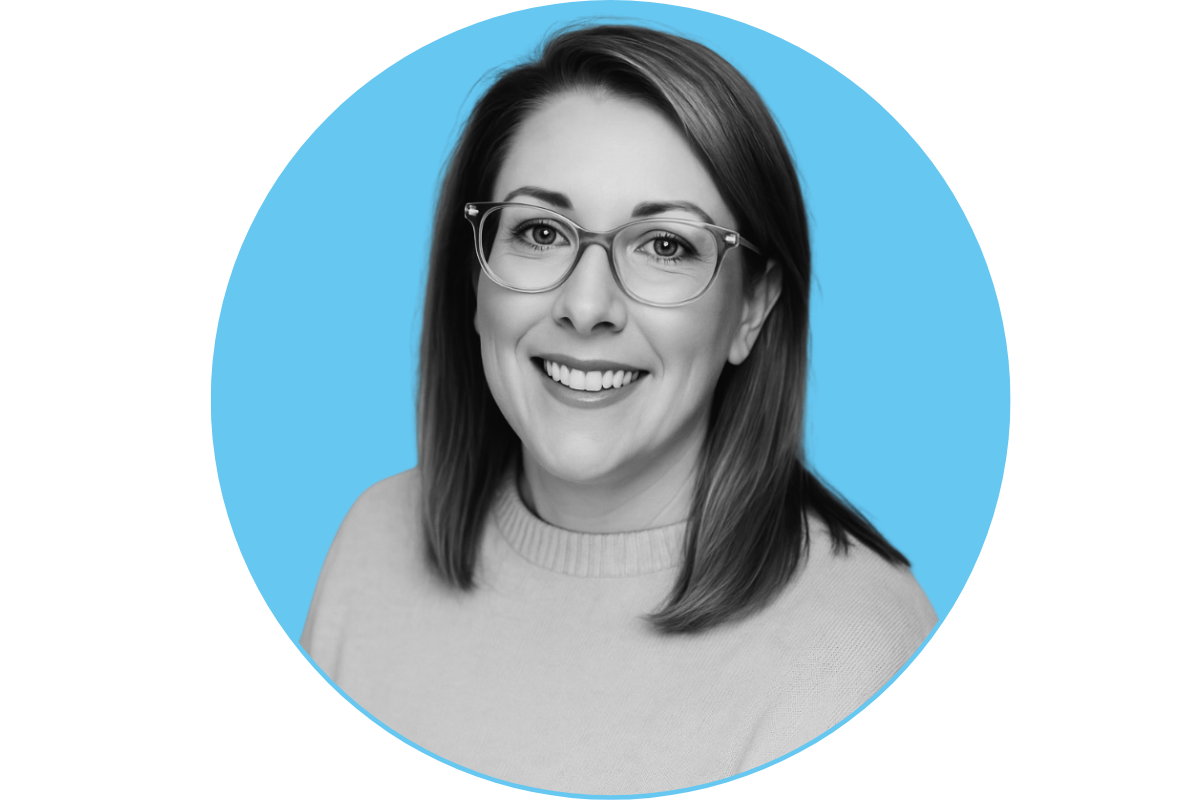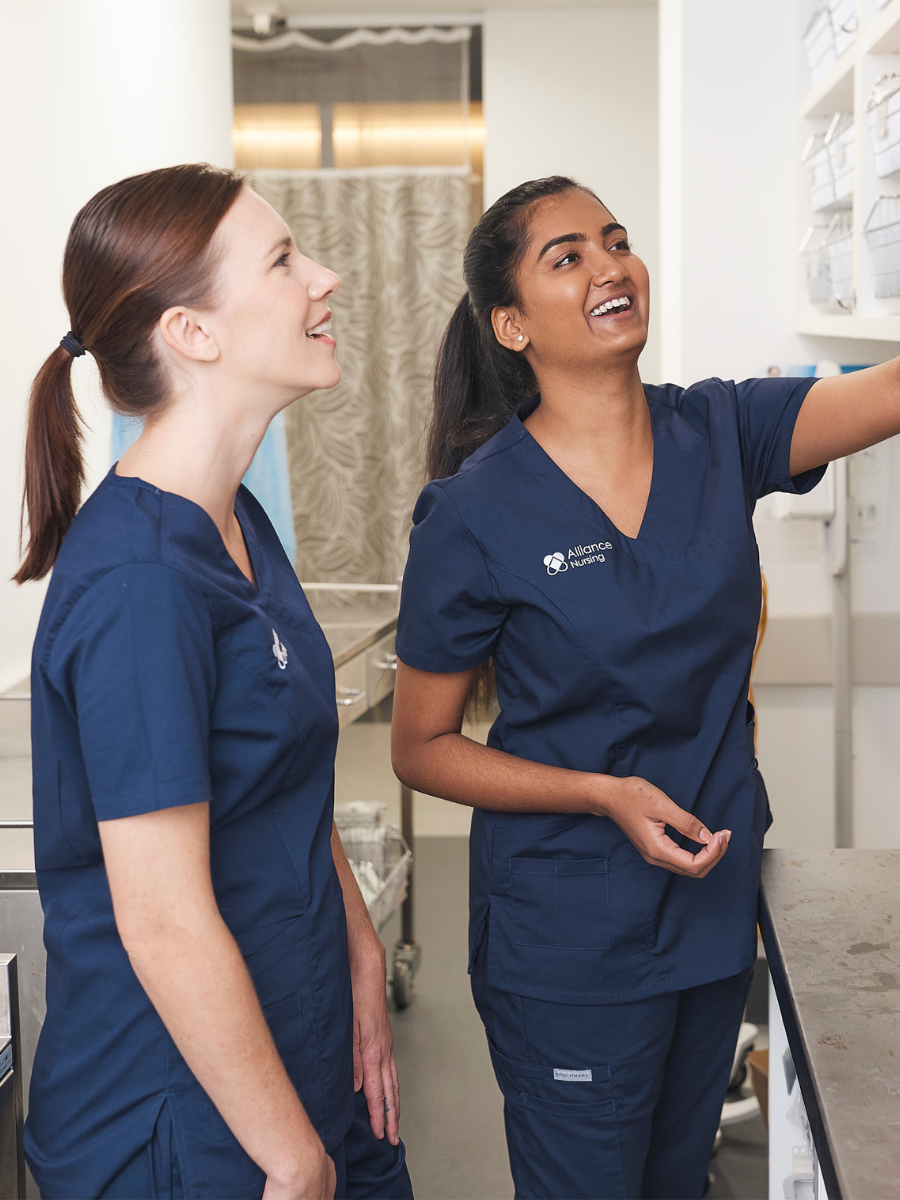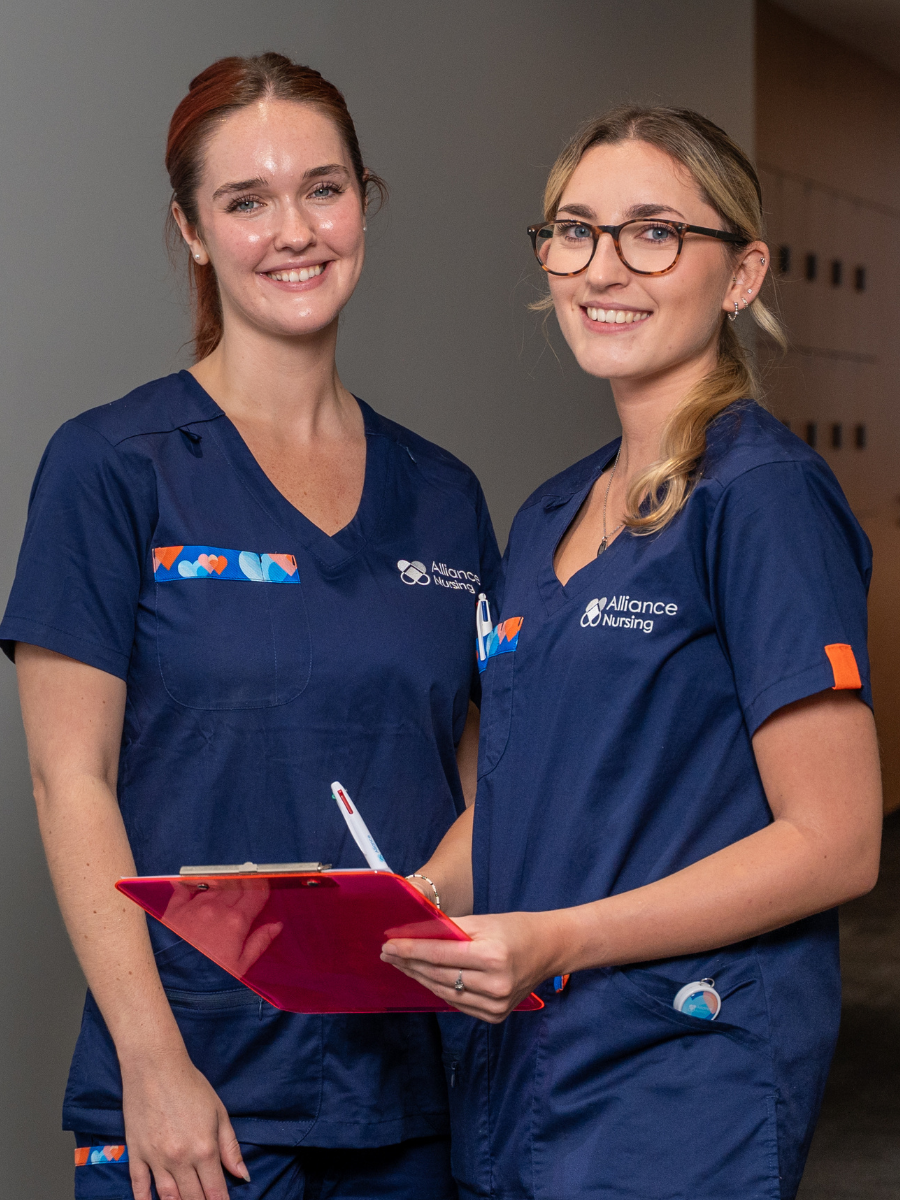Discover how Courtney Laffin, National Clinical Education and Quality Manager at Alliance Nursing, uses her 20+ years of experience to drive continuing education, governance, and safe, evidence-based care across the business.
Clinical quality is something we’re passionate about, and Courtney Laffin — our National Clinical Education and Quality Manager — plays a big part in this. She works across the business to make sure nurses have the knowledge and support they need to deliver safe, evidence-based care.

Courtney Laffin, National Clinical Education and Quality Manager
We caught up with Courtney to chat about her clinical experience, what her role involves, and how she champions education and quality throughout our nursing business.
Q: How has your 20+ years of clinical experience shaped your approach to this role?
A: "It’s given me perspective. I understand the challenges nurses face day to day, which helps me implement realistic education and governance processes that genuinely support them rather than add to their workload."
Q: What does a typical day look like for you?
A: "No two days are the same. I might be reviewing an incident, developing education resources, meeting with branch teams, or participating in an audit."
Q: Why is continuing education critical for our nurses?
A: "Because practice environments vary so much, ongoing education ensures nurses stay current, adaptable, and safe - wherever they’re placed."
Because practice environments vary so much, ongoing education ensures nurses stay current, adaptable and safe - wherever they're placed.
Courtney Laffin, National Clinical Education and Quality Manager

Q: What is the most rewarding part of your role?
A: "Seeing how far Alliance Nursing has come in supporting nurses to meet their education needs. When I first started, we were using an outdated learning system that didn’t meet the needs of our nurses. Now, we have an Australian-based, modern platform that truly supports their learning and professional growth. Seeing nurses log in, complete training that’s meaningful to their practice, and share feedback about how it’s helped them grow - is incredibly rewarding."
Q: How do your programs ensure nurses meet NSQHS and ACQS standards?
A: "Our education requirements are mapped to these standards and focus on clinical risk areas. This provides consistency across job roles, specialties, and facilities."
"We also use an Australian learning management system (LMS) and design education using adult learning principles. Modules include clinical scenarios, short lessons, and reflective activities that connect directly to everyday practice."
Q: What are some misconceptions about professional development in nursing?
A: "That it’s only about ticking boxes. Good education should be meaningful - it’s about improving confidence, safety, and quality of care."
Q: How does clinical governance impact patient safety and client confidence?
A: "Strong governance builds trust. It shows we take accountability seriously and ensures the right systems are in place to support both nurses and clients."
Q: Can you share an example of a quality improvement initiative that made a big difference?
A: "We recently enhanced our onboarding and competency review processes, aiming to better identify training needs early and support safer, more consistent care."

Q: How do you balance compliance requirements with real-world nursing challenges?
A: "We use feedback from nurses and clients to make compliance achievable and meaningful, not just administrative. It’s about continuous improvement, not punishment."
Q: How is technology changing the way you deliver training?
A: "It’s made learning more accessible and flexible. Our LMS is available as an app, so nurses can complete modules anywhere, anytime, and still stay connected to current practice."
Q: What emerging skills will nurses need in the near future?
A: "Increased digital literacy, critical thinking, and adaptability. As healthcare becomes more tech-driven, these skills will be just as important as clinical knowledge."
Q: What advice would you give to nurses who want to future-proof their careers?
A: "Stay interested and keep learning. Healthcare is always evolving - those who engage in ongoing professional development will always have opportunities."
Q: How do you see the role of education evolving in healthcare staffing?
A: "Education is no longer just about compliance - it is becoming a key part of workforce strategy and retention. Facilities are expecting more from their teams and agency staff are no exception."
Q: What excites you most about the future?
A: "The growing focus on recognising education as a driver of quality care."
Learn how we maintain high standards and strong governance across our business by visiting our Quality & Safety page or seeing who is on our Leadership Team.


